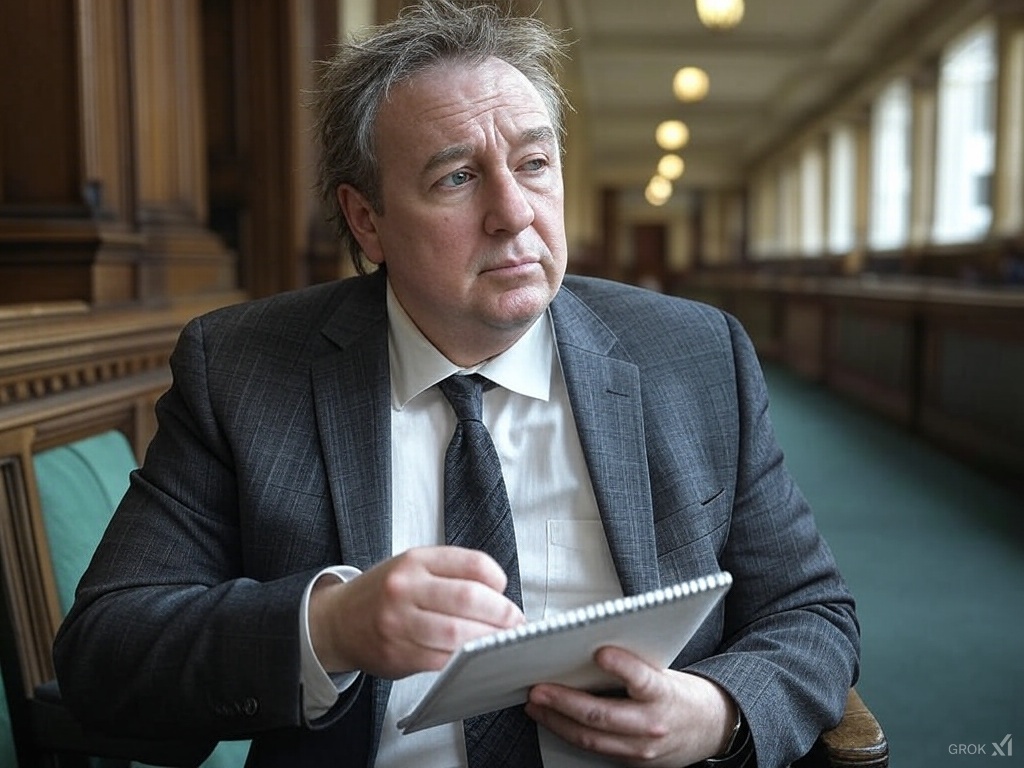A New Age of Ministry Mutism
Once so eager for the spotlight, an increasing number of Tory heavyweights now duck the glare. Kemi Badenoch’s swift exit from her final leadership speech this October was more Michelangelo than minister—a hasty retreat past the press pack without so much as a “good morning” or a “cheerio” to the hacks (huffingtonpost.co.uk). Less theatrical but far more insidious is Downing Street’s diktat barring senior civil servants from taking questions at public events—ensuring that only ministerial lips may shape the narrative (theguardian.com, instituteforgovernment.org.uk). Between silent speeches and gagged mandarins, Whitehall’s communication strategy now resembles a monastery more than a modern government: hushed, opaque, and centrally controlled.
The Silence After the Speech
Take Kemi Badenoch, once touting free speech for all, only to choke on her own press pack. On October 2, 2024, after urging delegates to “not be afraid” to share their politics, she ignored every shouted question—skirting journalists as if the very act of inquiry were contagious (huffingtonpost.co.uk). When pressed—“Kemi, why won’t you answer?”—she merely muttered about a “next event” and ascended the stairs in stoic silence. It was a masterclass in non-engagement, and proof that ministerial arrogance now outmatches even the most infamous posturing of Liz Truss or Boris Johnson in their ungainly media dashes.
Gagging the Mandarins
Meanwhile, inside the whitewashed walls of Whitehall, a far less amusing drama unfolds. Late June 2025 saw No 10 release guidance effectively banning civil servants from speaking at any event with Q&A sessions or media presence, unless they undergo a labyrinthine vetting process (theguardian.com, civilserviceworld.com). The Institute for Government warned this “overreach” would damage policy-making and public discourse by insulating officials from real-world feedback (instituteforgovernment.org.uk). Treasury representatives even pulled out of an IfG event, leading to its cancellation—proof that “control freakery” is no idle charge but a self-sabotaging silencing of expertise (suarasakti.com).
Notable Moments of Ministerial Mute-itude
| Name | Date | Evasion | Source |
|---|---|---|---|
| Kemi Badenoch | Oct 2 2024 | Refused questions after final leadership speech | turn0search1 |
| Liz Truss | Feb 27 2024 | Ignored nine BBC questions during street ambush | turn1search0 |
| Boris Johnson | Dec 11 2019 | Retreated into a fridge to dodge Good Morning Britain | turn2search0 |
| Senior Civil Servants | Jun 2025 | Banned from public Q&As without Downing Street approval | turn0news12turn0search2 |
What It Means for Democracy
Gone are the days when ministers faced a free press and mandarin expertise. Instead, we have political Skyping: ministers in bespoke soundproof booths, civil servants queued up like props on a stage managed by No 10’s communications grid. Transparency is throttled, accountability starved, and public trust gasping for air. When senior officials must clear tweets with Downing Street, policy becomes a monologue, not a dialogue. Worse still, the very institutions meant to ensure impartial advice are corralled into silence—transforming the civil service from a public servant to a public puppet.
The Irony for the Opposition
And while Tory grandees perfect the art of the dodge, Keir Starmer looks on with smug satisfaction. With every unanswered question and every gagged briefing, Labour’s leader gains rhetorical ammunition—mocking ministers from the relative safety of the opposition benches. If the governing party thinks control equates to competence, it might soon discover that silence speaks volumes—and not in their favour. In the end, the loudest message from Westminster today is a deafening quiet: ministers and mandarins have traded scrutiny for secrecy, and British democracy is the poorer for it.
